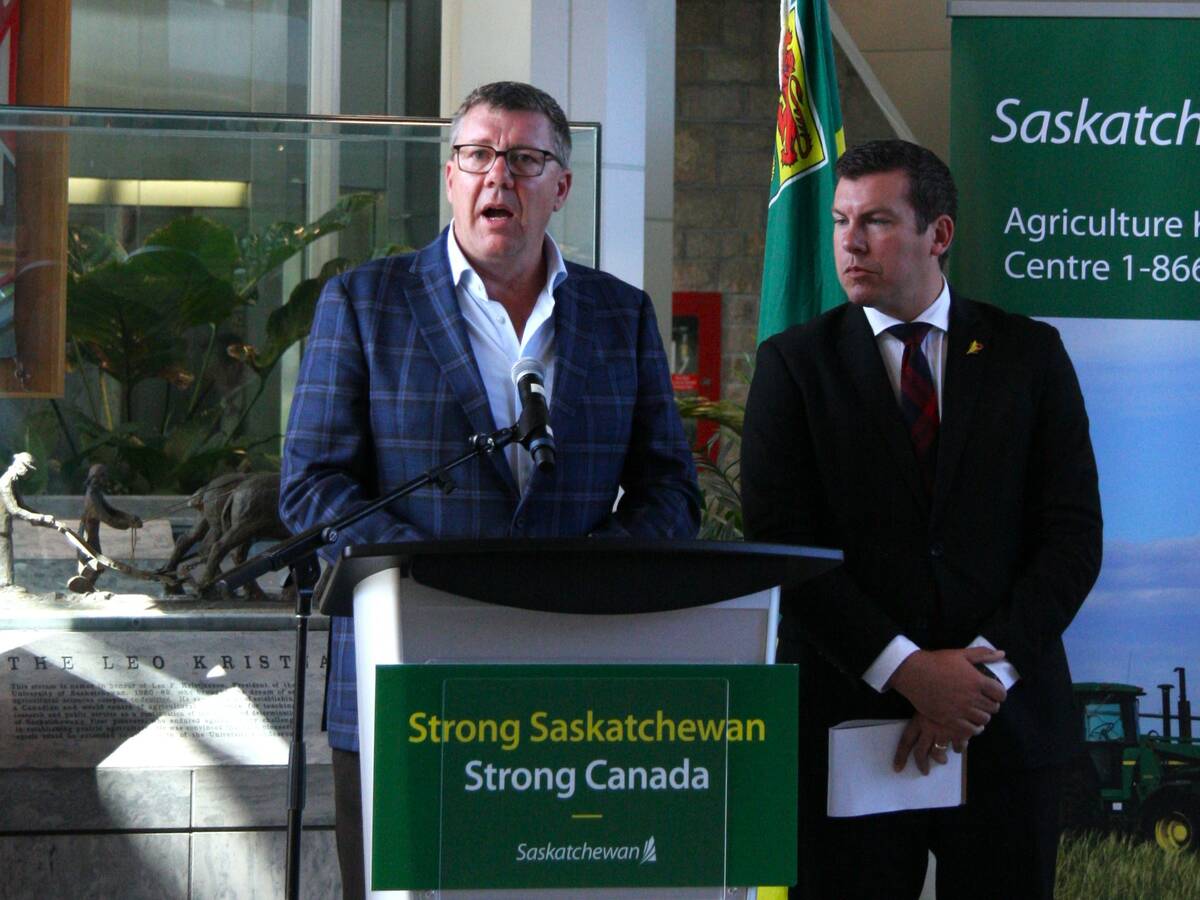Dispel myths | Call for science-based debate
An advocate for a more informed science debate in Canada says future generations will look back and wonder what all the fuss was about over genetically modified crops.
Joe Schwarcz, director of the McGill University’s Office for Science and Society, told a CropLife Canada conference in Ottawa May 10 that resistance to GM crops is part of a broad environmental resistance that is based on emotion rather than science.
He said the challenge of feeding a growing and hungry world cannot be met without the benefits of increased yields and hardier varieties that can be produced through GM technology.
Read Also

Key actions identified to address canola tariffs
Federal and Saskatchewan governments discuss next steps with industry on Chinese tariffs
“I really believe that 50 years from now, people will say, ‘what were we arguing about GMOs for,’ ” he said.
Schwarcz acknowledged that speaking to a CropLife Canada audience was “talking to the choir.” They represent the companies that produce and sell agricultural chemicals and GM seed varieties.
The crowd clearly appreciated his message that much of the resistance to pesticides and genetic modification is the result of “chemophobia” in the population, based on misperceptions about chemicals and their impact.
Everything is made of chemicals, he said.
“If you are buying your child a chemical-free product, it is not a good deal,” he said. “You are buying a vacuum.”
Schwarcz said the McGill centre he heads is funded by neither side of the debate so there is no conflict of interest.
The centre’s mission is to “keep people out of the clutches of the charlatans” and to “sift sense from the nonsense.”
For Schwarcz, the nonsense comes from anti-chemical and anti-GM advocates who insist that organic food is safer, more environmentally friendly and more nutritious than produce raised with chemical help or that “natural” food is safer than GM food.
He said organics have a legitimate place in the food system, but all food and products contain natural chemicals so the idea of “chemical-free” is ludicrous.
As well, use of synthetic pesticides and fertilizers for food production is not an inherent danger as long as proper food testing and residue limit controls are in place.
“Chemicals are not to be feared, not to be worshipped but to be understood,” said Schwarcz.
He said the pesticide industry has not done a good job explaining that pesticides and herbicides are necessary to fight the 10,000 known insects, 8,000 fungi and 2,000 weeds that affect food production.
“Chemicals are used out of necessity and that’s the message we have to convey,” he said.
He also said critics of chemical use in agriculture overlook the rigorous testing and oversight in the Canadian pesticide regulation and food inspection systems.
Excess use of chemicals and lingering residues can be dangerous but Canadian food in the marketplace is overwhelmingly safe, he added.
“Death does not lurk in the produce aisle,” he said.
The basic apple contains 300 natural chemicals, some of them toxic in high doses and yet it is a nutritious and healthy product, said Schwarcz.
“What we have to do away with is the battle between organic and conventional,” he said. “Both have their place and one is not inherently safer than the other.”
















